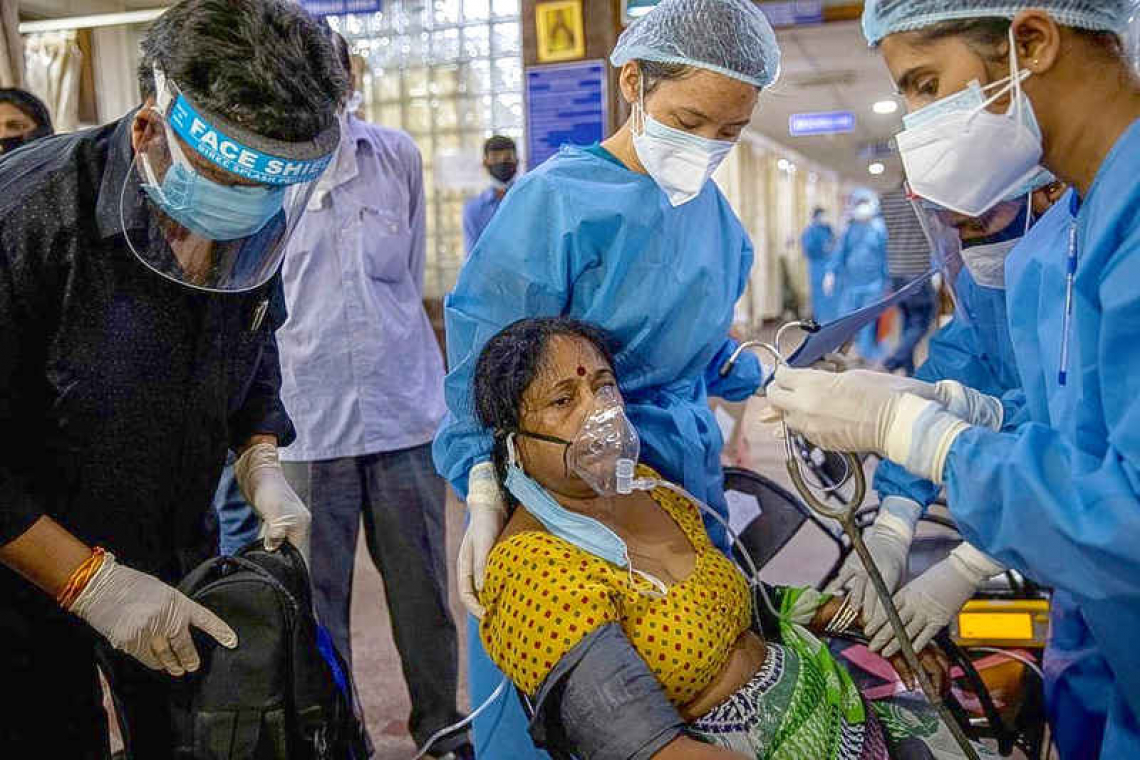The second wave of COVID-19 currently sweeping India is not evidence that vaccines are ineffective, despite social media users claiming otherwise.
Health facilities and crematoriums have been overwhelmed by the pandemic, prompting an increasingly urgent response from other countries to send vital equipment. However, experts say this is caused by a combination of factors, such as a slow vaccination campaign, the relaxation of preventative measures and the circulation of more transmissible variants.
On social media, users have shared an image of a graphic titled the “Truth about India”, which plots the daily number of COVID-19 deaths in the world’s second most-populous nation from March 2020 to April 2021.
An arrow and the text: “Ivermectin introduced across India to treat Covid” points to the first peak in September 2020, after which cases are shown to decrease.
Likewise, the second wave of cases in March 2021 is labelled: “Covid vaccine roll-out ramps up”.
The suggestion from these Facebook posts is that ivermectin, a generic anti-parasite drug, has helped to lower circulation of the virus, while vaccines failed to prevent – or may have even caused – the second wave of infections.
First, it should be noted that the World Health Organization (WHO) has recommended against using ivermectin in COVID-19 patients except for during clinical trials, because of a lack of data demonstrating its benefits.
Second, although it is true that COVID-19 cases have increased despite the vaccine rollout, this does not mean vaccines are ineffective.
As of May 10, only 2.5% of India’s 1.35 billion population has received both doses of a vaccine, while 9.8% has received one dose – and these numbers were even lower when cases started to increase again.
Further to this, the surge in infections has coincided with a dramatic drop in vaccinations because of supply and delivery problems, despite India being a major vaccine producer.
At least three states, including Maharashtra, home to the commercial capital of Mumbai, have reported a scarcity of vaccines, shutting down some inoculation centres.
Some health experts have suggested that India became complacent in the winter, when new cases were running at about 10,000 a day and seemed to be under control. Authorities had lifted restrictions, allowing for the resumption of big gatherings. There is also the possibility that different variants of the virus have contributed to the spike.
Others said the spike could be due to a more dangerous variant coursing through India, a country where people live in close proximity, often six to a room.
The northern Indian state of Punjab, for example, which has reported one of the highest recent fatality rates in the country, said in late March that 81% of 401 COVID-19 samples it sent for genome sequencing were found to be the variant B.1.1.7 first identified in Britain, which British scientists say is 70% more transmissible and much deadlier than previous ones.
Meanwhile, the Indian variant B.1.617 is widely present in Maharashtra, the country's hardest-hit state, according to India’s National Centre for Disease Control. Early modelling of the variant has suggested increased transmissibility, according to the WHO, which also declared the variant on May 10 as one of global concern.
VERDICT
False. Multiple factors, including a slow vaccination campaign, relaxation in preventative measures and more transmissible variants are all factors that experts say are causing the current wave of infections in India.
This article was produced by the Reuters Fact Check team. Read more about its fact-checking work at https://www.reuters.com/fact-check/about. For the original article with several links to the sources mentioned as well as past articles, visit Reuters.com. Photo: A patient suffering from the coronavirus receives treatment inside the emergency ward at Holy Family hospital in New Delhi, April 29. Reuters/Danish Siddiqui/File Photo.







